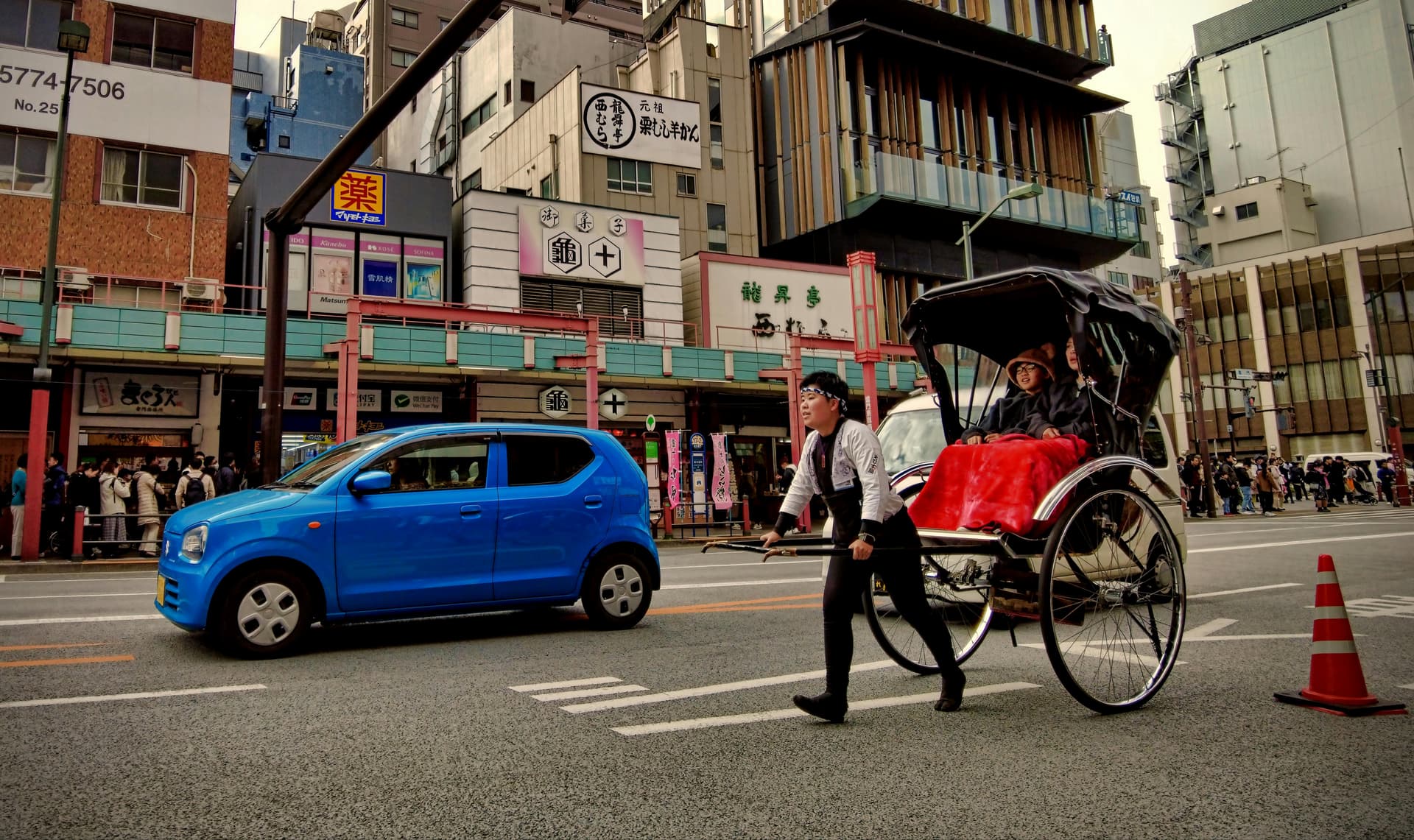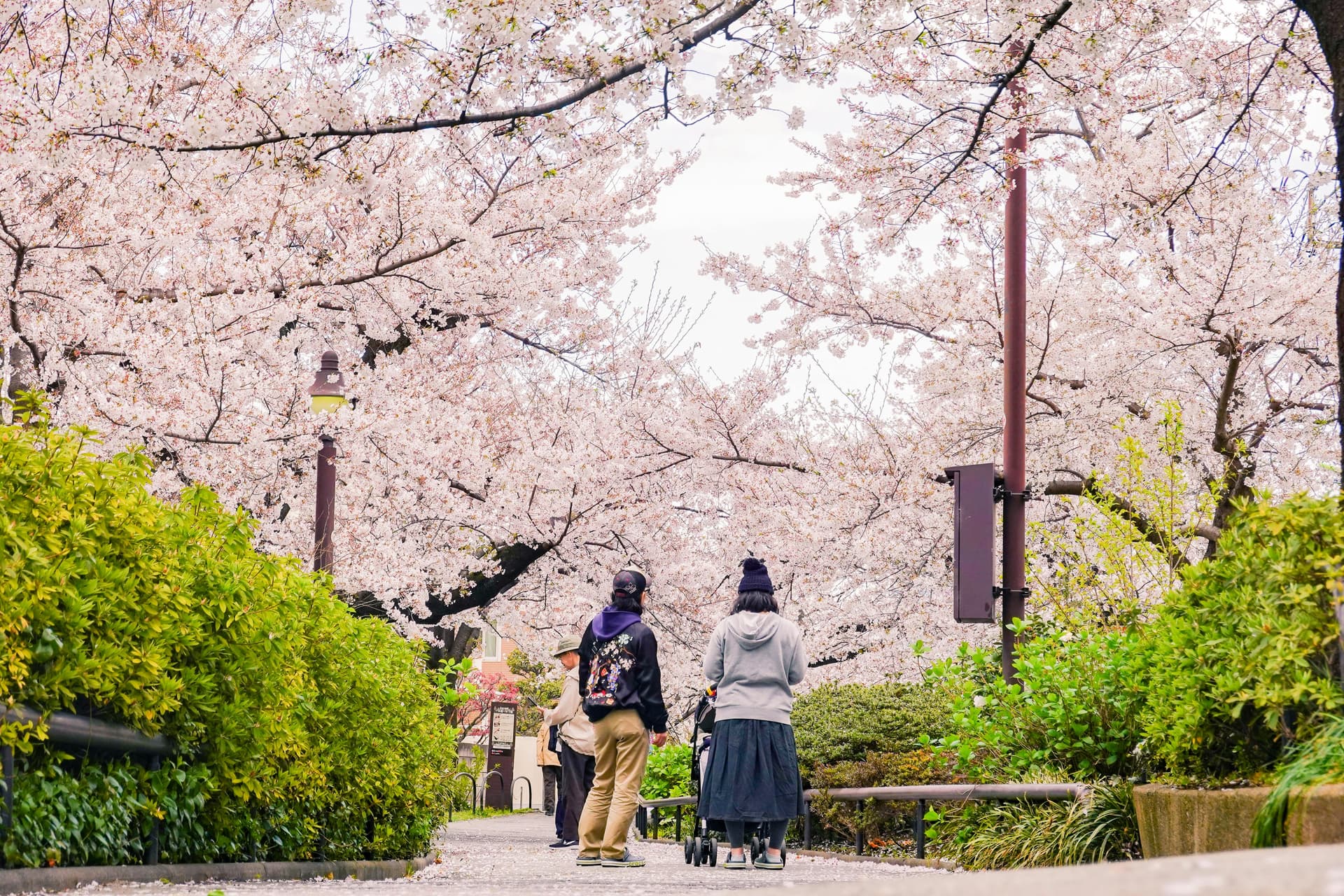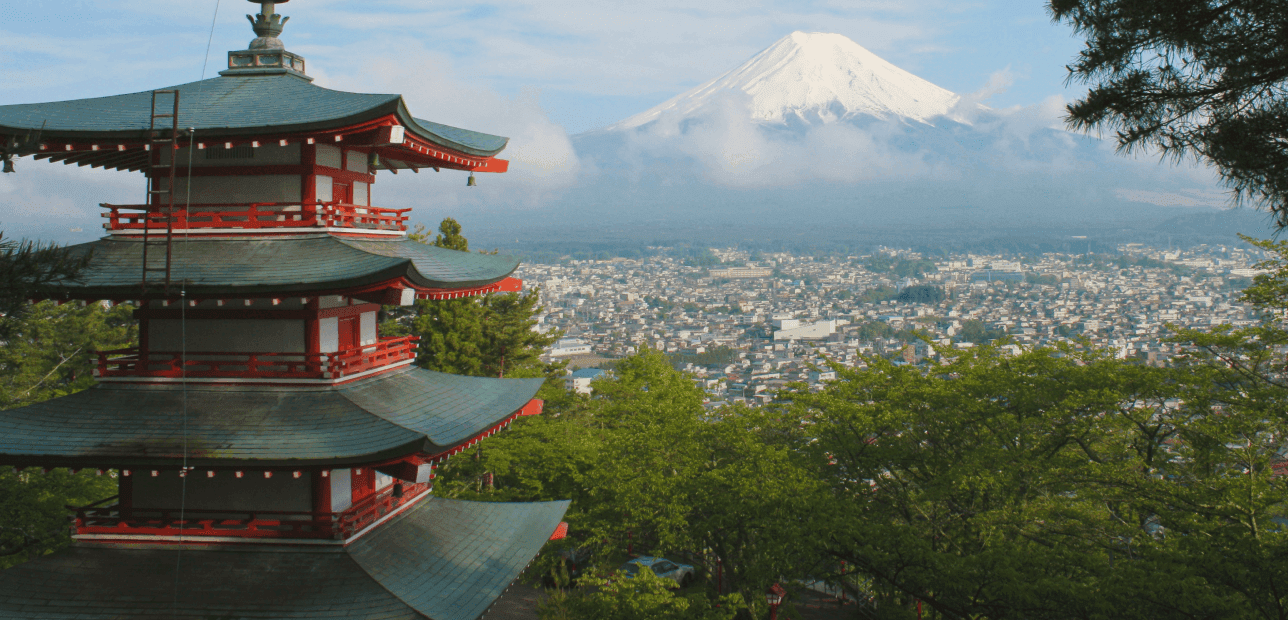Learn what travel insurance for Japan covers, what it doesn’t, and how to choose the best policy for a seamless, worry-free trip.
Learn what travel insurance for Japan covers, what it doesn’t, and how to choose the best policy for a seamless, worry-free trip.
Japan is safe, but medical costs are high and natural disasters happen. Here's whether you need insurance, what coverage matters, and how to avoid expensive mistakes.
Do You Need Travel Insurance for Japan?
No, travel insurance is not legally required to enter Japan in 2025.
The Japanese government does not mandate insurance for tourist visas. During the COVID-19 pandemic, Japan temporarily required visitors to carry virus-related medical coverage, but this requirement ended when travel restrictions lifted.
That said, traveling without insurance in Japan carries real financial risk. Medical costs are significantly higher than many Western countries, and most hospitals require upfront payment from foreign tourists.
What You're Actually Protecting Against
Medical Costs Without Insurance
Japan's healthcare system is excellent but expensive for visitors without coverage.
| Medical Scenario | Cost Range (Yen) | Cost Range (USD) |
|---|---|---|
| Emergency room visit | ¥10,000-30,000 | $70-210 |
| ER visit (complex cases) | Up to ¥50,000 | Up to $350 |
| Broken bone (simple fracture) | ¥30,000-80,000 | $210-560 |
| Broken bone (surgery required) | ¥200,000-400,000 | $1,400-2,800 |
| Food poisoning (2-day hospitalization) | ¥150,000-300,000 | $1,050-2,100 |
| Appendicitis surgery (3-day stay) | ¥400,000-600,000 | $2,700-4,200 |
Most hospitals (70-80%) require upfront payment or deposit from foreign tourists. Only major international hospitals offer direct billing with insurers.
Natural Disaster Trip Disruptions
| Disaster Type | Frequency/Impact | Typical Impact on Travel |
|---|---|---|
| Typhoons | 3-5 per season affecting air travel | 2-4 days airport disruptions (Aug-Sep peak) |
| Typhoon delays | Most storms | 12 hours to 3 days (most resolve in 24-48 hrs) |
| Severe typhoons | Occasional | 3+ day backlogs due to aircraft repositioning |
| Earthquakes | Frequent | Rarely disrupt travel significantly; large quakes may affect trains/accommodations temporarily |
Japan experiences 3-5 typhoons per season that impact air travel.
Medical Evacuation Costs
| Evacuation Type | Cost Range | When Needed |
|---|---|---|
| Domestic (rural to Tokyo) | $10,000-50,000 | Ground ambulance + helicopter if required |
| International repatriation | $50,000-150,000+ | Evacuation to home country for treatment |
First-time visitors to Japan often face a similar calculation about navigating Tokyo's transit system, food safety, and cultural norms without local knowledge — weighing risk mitigation against cost at every decision point.
Quick Recommendations by Traveler Profile
| If You're... | Priority Coverage | Key Considerations |
|---|---|---|
| Family with kids | Medical (¥100K+), trip interruption | Kids get sick unexpectedly. Pediatric care in Japan is excellent but expensive. Trip interruption covers illness-related itinerary changes. |
| Senior traveler (65+) | Medical (¥250K+), evacuation (¥500K+) | Age increases medical premiums 2-3x but also increases likelihood of needing coverage. Evacuation from rural areas to Tokyo can exceed $50,000. |
| Adventure traveler (skiing, hiking) | Adventure sports rider, evacuation | Standard policies exclude skiing and remote hiking. Niseko to Sapporo medical evacuation alone can cost $50,000+. |
| Budget backpacker | Basic medical, skip extras | If your trip costs under $1,000 and you're healthy, minimal coverage may suffice. Premium might exceed likely claims. |
| Business traveler (short trip) | Check credit card first | Premium cards often cover short trips adequately. Verify limits before buying duplicate coverage. |
| Pre-existing conditions | Buy within 14 days of deposit | Waiver window closes quickly. After that, conditions are permanently excluded. |
Coverage Types That Matter for Japan
Not all coverage types carry equal weight. Japan's specific risk profile determines what's essential versus optional.
| Coverage Type | Priority for Japan | Why It Matters | Cost Impact |
|---|---|---|---|
| Medical expenses | Essential | High costs + upfront payment requirements | Base coverage |
| Emergency evacuation | Essential | Remote area access + repatriation costs | Included in most |
| Trip cancellation/interruption | Essential | Non-refundable costs protection | Standard feature |
| Trip delay | Important | Typhoon season disruptions common | Standard feature |
| Lost/stolen luggage | Important | Low theft rates, but standard coverage | Standard feature |
| Cancel for any reason (CFAR) | Optional | Flexibility for non-covered reasons | +40-50% cost |
| Adventure sports riders | Optional* | Required only if skiing, diving, etc. | +15-30% cost |
*Becomes essential if engaging in excluded activities.
How Coverage Levels Map to Japan Costs
Coverage limits determine whether a policy actually protects you or just creates false confidence.
Is $50,000 Medical Coverage Enough?
$50,000 covers routine medical care and minor surgeries, but may fall short for major surgery with complications.
Major surgery costs $30,000-80,000+ depending on complexity. ICU stays add $5,000-10,000 per day.
Acceptable minimum for short trips with low-risk activities. Insufficient for longer stays or travelers with health concerns.
Is $250,000 Medical Coverage Enough?
$250,000 covers most medical scenarios in Japan, including major surgery, complications, and extended hospitalization.
This level handles serious emergencies short of extended critical care or international medical evacuation.
Recommended standard for most travelers. Provides substantial protection without premium-tier pricing.
Mapping Scenarios to Required Coverage
| Scenario | Estimated Cost | Minimum Coverage |
|---|---|---|
| Simple fracture (casting, follow-up) | ¥30,000-80,000 ($210-560) | $50,000 medical |
| Appendicitis surgery with 3-day stay | ¥400,000-600,000 ($2,700-4,200) | $50,000 sufficient, $100,000+ preferred |
| Major surgery with ICU complications | $50,000-100,000+ | $250,000 medical |
| Medical evacuation from rural area to Tokyo | $10,000-50,000 | $100,000 evacuation |
| International medical repatriation | $50,000-150,000+ | $250,000-500,000 evacuation |
Provider Comparison: Coverage Tiers
Insurance providers structure coverage in tiers. Understanding tier characteristics helps avoid overpaying or buying insufficient protection.
| Coverage Type | Budget Tier | Standard Tier | Comprehensive Tier |
|---|---|---|---|
| Medical coverage | $25,000-75,000 | $100,000-250,000 | $500,000-1,000,000+ |
| Trip cancellation | 50-75% of trip cost | 100% of trip cost | 100% + cancel-for-any-reason |
| Emergency evacuation | Excluded or $25,000 | $250,000-500,000 | $1,000,000+ |
| Luggage coverage | Basic or excluded | $1,000-2,500 | Enhanced coverage |
| Adventure sports | Excluded | Add-on available | Often included |
| Cost (1 week, age 30-40) | Varies | $40-80 | Premium pricing |
Budget Tier
Best for: Very short trips, minimal health risks, travelers with strong credit card coverage supplementing the policy.
Risk: Insufficient for major medical emergencies or evacuation needs.
Standard Tier
Best for: Most travelers to Japan. Balances comprehensive coverage with reasonable cost.
Coverage note: This tier typically includes natural disaster trip delay, which matters during typhoon season.
Comprehensive Tier
Best for: Travelers with significant health concerns, high trip costs, or engaging in adventure activities.
Premium features: May include concierge services, automatic adventure sports coverage, and higher luggage limits.
Common Exclusions & What They Mean in Japan
Standard policies exclude specific scenarios. Understanding exclusions prevents claim denials.
| Exclusion Type | What's Excluded | How to Get Coverage | Japan-Specific Impact |
|---|---|---|---|
| Pre-existing conditions | Conditions diagnosed/treated before purchase | Buy within 10-21 days of trip deposit | High medical costs make this critical |
| Adventure sports | Skiing, diving, remote hiking | Purchase adventure sports rider (+15-30%) | Remote ski resorts = expensive evacuations |
| Mental health | Psychological treatment, crises | Varies by provider | Check policy details carefully |
| Drugs/alcohol | Injuries while intoxicated | Not available | Japan's strict drug laws compound issues |
| Advisory areas | Travel to warned regions | Not available while advisory active | Coverage void if you travel anyway |
Pre-Existing Medical Conditions
Most policies exclude conditions diagnosed or treated before policy purchase.
The waiver window: Purchase insurance within 10-21 days (typically 14 days) of your first trip deposit to cover pre-existing conditions. After this window closes, pre-existing conditions remain excluded.
Japan context: If you have diabetes, heart conditions, or other managed health issues, the pre-existing condition waiver is critical. Medical costs in Japan make excluded conditions financially catastrophic.
For older travelers or those with mobility considerations, insurance is just one piece of accessible travel planning in Tokyo — a city where even the most tourist-friendly areas require careful route planning.
Adventure and Extreme Sports
Standard policies exclude skiing, scuba diving, hiking in remote areas, and similar activities.
Riders required: If skiing in Hokkaido or hiking Mt. Fuji, purchase adventure sports coverage.
Japan context: Ski resorts are remote. Medical evacuation from Niseko to Sapporo, then potentially to Tokyo, can exceed $50,000.
Mental Health and Elective Procedures
Psychological treatment, mental health crises, and elective medical procedures are typically excluded.
Emergency mental health treatment coverage varies by provider — check policy details.
Injuries Due to Drugs or Alcohol
Injuries sustained while intoxicated or under the influence are excluded.
Japan context: Japan has extremely strict drug laws. Any drug-related incident creates both legal and insurance complications.
Travel to Advisory Areas
If your government issues a travel advisory for a region and you travel there anyway, coverage may be voided.
Buying & Using Insurance in Japan
Where to Buy
| Purchase Method | Advantages | Disadvantages |
|---|---|---|
| Direct from providers online | Simplest option, easy comparison | Must research options yourself |
| Through travel agents | Expert explanation of nuances | Limited provider selection |
| Credit card benefits | Already included, no extra cost | Severe limitations, gaps in coverage |
Credit Card Coverage Limitations
Credit card insurance often creates false confidence. Typical limitations:
| Coverage Area | Typical Credit Card Limit | Limitation |
|---|---|---|
| Medical coverage | $0-50,000 | Many cards exclude medical entirely |
| Trip cancellation | Trip cost charged to card | Must charge entire trip to that specific card |
| Pre-existing conditions | Excluded | Almost universal exclusion |
| Adventure sports | Excluded | No coverage for skiing, diving, etc. |
| Age limits | 65-70 maximum | Older travelers often excluded |
| Coverage type | Secondary | Requires filing with another policy first |
Premium cards offer better coverage, but even these rarely match dedicated travel insurance for medical protection.
When to Buy
| Coverage Goal | Purchase Timing | Reason |
|---|---|---|
| Pre-existing condition coverage | Within 10-21 days of first trip deposit | Waiver window closes after this period |
| Trip cancellation | Before any non-refundable bookings | Can't cancel what's already paid |
| Medical coverage | Before departure | Some allow post-arrival but limited benefits |
| Full protection | As early as possible | Lower premiums, maximum coverage options |
Waiting until a week before departure means higher premiums and no pre-existing condition waiver.
What to Carry
-
Insurance certificate (digital and printed)
-
Policy number
-
Emergency contact numbers (local and international)
-
List of covered and excluded activities
Using Insurance at Hospitals
Most Japanese hospitals require upfront payment or deposit. Direct billing with international insurers is uncommon.
Expected process:
-
Receive treatment
-
Pay hospital bill upfront (credit card typically accepted at international hospitals)
-
Collect itemized receipts, discharge summary, and diagnosis documentation
-
File claim with insurer
-
Wait 2-6 weeks for reimbursement (straightforward claims with complete documentation)
Direct billing exception: Major international hospitals in Tokyo and large cities may offer direct billing arrangements with major insurers. Call your insurer before seeking treatment if possible.
Required Documentation for Claims
-
Original itemized receipts from hospital/clinic
-
Medical discharge summary or doctor's report
-
Diagnosis codes (ICD codes if available)
-
Proof of payment
-
Completed claim form from insurer
-
Copy of passport and policy documents
-
Police report (if injury from accident or crime)
Missing documentation delays claims by 4-6 additional weeks.
English-Speaking Hospital Access
Japan has hospitals with English-speaking staff in major cities. Comprehensive English services are limited to international hospitals.
Tokyo
| Hospital Name | Specialties | Payment Notes |
|---|---|---|
| St. Luke's International Hospital | Full-service, all specialties | International services, some insurer direct billing |
| Tokyo Medical and Surgical Clinic | Primary care, general practice | English-speaking staff, credit cards accepted |
| The University of Tokyo Hospital | Full-service, global care unit | Large university hospital, limited English |
Osaka
| Hospital Name | Specialties | Payment Notes |
|---|---|---|
| Osaka Red Cross Hospital | General and emergency care | Some English support |
| Osaka International Cancer Institute | Specialized cancer care | International patient support |
Kyoto
| Hospital Name | Specialties | Payment Notes |
|---|---|---|
| Kyoto University Hospital | Full-service, some English | Large hospital, variable English availability |
Other Major Cities
| City | Hospital Name | Notes |
|---|---|---|
| Yokohama | Yokohama City Minato Red Cross Hospital | Foreigner assistance available |
| Fukuoka | Fukuoka Sanno Hospital | English-speaking staff, modern facilities |
| Sapporo | Sapporo Medical University Hospital | International desk available |
Realistic Expectations
Most hospitals have some English-speaking staff, but comprehensive English services are limited to major international hospitals in Tokyo and Osaka.
Smaller cities and rural areas have minimal English support. Hospitals may provide translation services or allow interpreter apps, but expect communication challenges.
Check your insurer's preferred hospital list before departure. Some insurers partner with specific facilities for easier direct billing.
Even with English-speaking staff, navigating Japan's healthcare system during an emergency can be overwhelming. Many travelers find that having a local guide familiar with Tokyo's healthcare system provides peace of mind beyond insurance coverage alone — especially for families or those with mobility needs.
When You Might Not Need Insurance
Travel insurance isn't universally necessary. Some scenarios make coverage redundant or not cost-effective.
| Scenario | Requirements | Verify Before Skipping | Risk Level |
|---|---|---|---|
| Strong credit card coverage (short trip) | Medical >$50K, trip cancellation matches cost, primary coverage, no age limits | Read card benefits document carefully | Low (if all requirements met) |
| Long-term Japan residents | Japanese health insurance (shakai/kokumin hoken) | May still need trip cancellation coverage | Low for medical, varies for trip costs |
| Very low trip costs | Total trip under $500, healthy, no pre-existing conditions, refundable bookings | Premium may exceed financial risk | Low (premium cost vs. exposure) |
| Self-insurance capacity | Can absorb $10,000-20,000 medical bill, not engaging in high-risk activities | Only for travelers with substantial liquid savings | Medium (acceptable for small % of travelers) |
Important: Most credit cards exclude or severely limit medical coverage. Verify coverage carefully before deciding to skip insurance.
Cost-Benefit Examples
| Traveler Profile | Insurance Recommendation |
|---|---|
| Day trip from cruise ship | Unnecessary |
| 3-day business trip, age 30, excellent credit card coverage | Optional |
| 2-week family vacation, age 40, with kids | Strongly recommended |
| Ski trip to Hokkaido, any age | Essential (with adventure sports coverage) |
| Senior traveler, 70+, pre-existing conditions | Essential (with pre-existing waiver) |
| Budget backpacker, short trip, refundable bookings | Optional (cost may exceed risk) |
Cost Reality Check
Insurance costs vary significantly by trip length, age, and coverage tier.
By Trip Length and Age (Standard Coverage)
| Trip Length | Age 30-40 | Age 50-70 | Age 70+ |
|---|---|---|---|
| 1 week | $40-80 | $80-150 | $120-250+ |
| 2 weeks | $70-120 | — | — |
| 1 month | $120-200 | — | — |
Per-day costs decrease for longer trips.
Age Premium Multipliers
| Age Range | Multiplier vs. Base Rate |
|---|---|
| Age 50-60 | 1.5-2x |
| Age 60-70 | 2-2.5x |
| Age 70-75 | 2.5-3.5x |
| Age 75+ | 3-5x (if coverage available) |
Pre-existing condition waivers add 20-40% to premiums at any age.
Why Seniors Pay More
Seniors face higher medical costs and higher claim frequency. Pre-existing conditions become more common. Some providers cap coverage at 75-80 years old.
If you're over 70, expect to pay significantly more for equivalent coverage. Budget this into trip planning rather than skipping insurance due to cost.
Travelers weighing insurance costs against value often face similar decisions about whether a private tour makes sense for your trip — both represent upfront investments that reduce risk and stress.
Premium Add-Ons That Increase Cost
| Add-On | Cost Increase |
|---|---|
| Cancel for any reason | +40-50% |
| Adventure sports coverage | +15-30% |
| Pre-existing condition waiver | +20-40% |
| Higher coverage limits | +30-60% |








